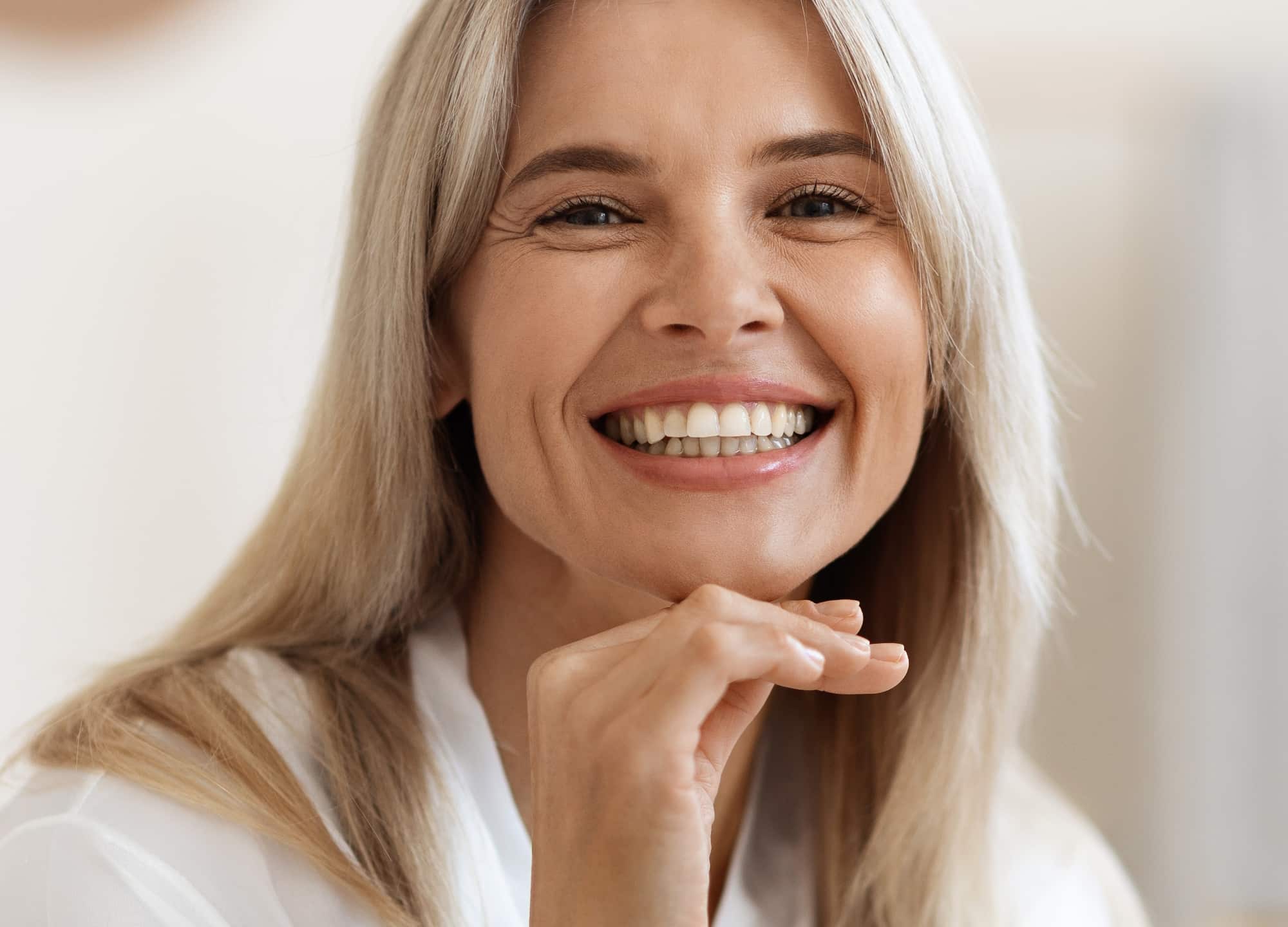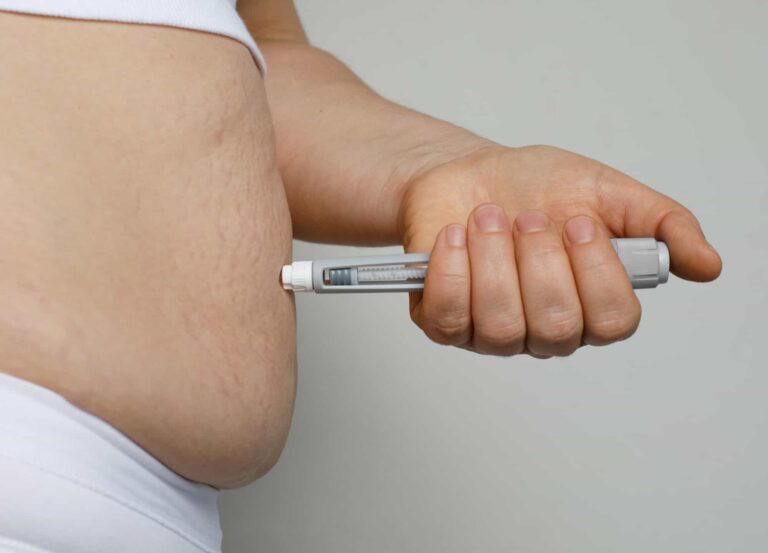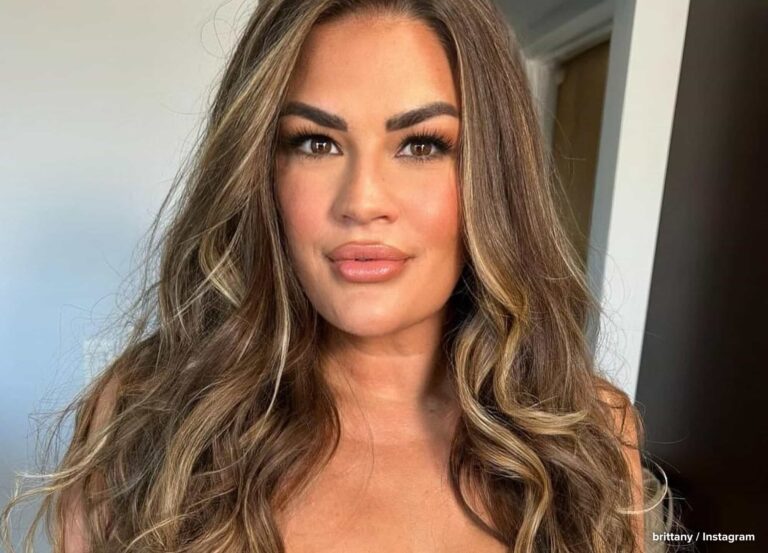Featured Experts
Dr. Karyn Grossman, a board-certified dermatologist in Santa Monica, California
Dr. Jessie Cheung, a board-certified dermatologist in Chicago and New York City
Dr. Lanna Cheuck, a board-certified urologist in New York City
Dr. Angela DeRosa, Belmar medical director
Dr. Anne Morgan, CEO and lead physician at Thrive Once More in Lee’s Summit, Missouri
Menopause is an inevitable part of life and affects about 3 million women every year, typically when they are between 45 and 55 years old. The definition of menopause is the end of menstruation. However, many women start to experience signs and symptoms of perimenopause up to 10 years before their period ends. This is when the ovaries slowly start to produce less estrogen and hormones start changing.
This life transition can produce a host of symptoms beyond the dreaded hot flashes. Sagging skin, loss of volume and fat in the face, hair thinning, weight gain, and a loss of sex drive are just some of the unpleasant side effects that women face, in addition to “night sweats, irregular periods, mood swings, fatigue, joint and muscle pain, memory issues, breast tenderness, digestive issues, skin changes, changes with cholesterol levels, changes in body odor, an increased risk of osteoporosis, and more,” says Palm Beach, Florida, board-certified urologist Dr. Lanna Cheuck.
“Less well-known but still common symptoms include urinary incontinence, headaches, palpitations, and anxiety,” adds Dr. Jessie Cheung, a board-certified dermatologist in Chicago and New York City who specializes in aesthetic wellness. “What I see is thinning, dry, dull skin and hair, and fat redistribution to the belly and back.”
Thankfully, there are many aesthetic and medical treatments available, including hormone replacement therapies from a compounding pharmacy such as Belmar Pharma Solutions, that can make menopause much more manageable. Keep reading to learn how to tackle the most common symptoms of menopause and find out if hormone replacement therapy is for you.
What is bioidentical hormone replacement therapy (BHRT) from Belmar Pharma Solutions?
Compounded bioidentical hormone replacement therapy, otherwise known as BHRT, can help from the inside out and work in tandem with aesthetic procedures to help with sagging skin and thinning hair. BHRT can produce better, longer-lasting results than aesthetic procedures alone, as it addresses the root causes of your health concerns. Doctors agree that hormone therapy addresses multiple health challenges and can help you not only look better but feel better.
“The best treatment for menopause is hormone replacement therapy, as clinical studies have shown that the proper delivery of balanced hormones decreases the relative risk of heart disease, breast cancer, strokes, osteoporosis, and dementia,” says Dr. Cheung.
Compounded hormones, especially those tailored to your specific needs, from a pharmacy like Belmar Pharma Solutions, can help alleviate and control many of the most common menopausal symptoms.
“Home remedies very rarely work—and, if they do, provide only a minimal amount of symptom improvement,” says Dr. Angela DeRosa, a board-certified internist and Belmar Pharma Solutions’ medical director. “In addition, when addressing women with hormonal imbalances or deficiencies, we are not only trying to improve their quality of life by improving symptoms but also establishing normal physiology so we can prevent chronic illness such as diabetes, high blood pressure, osteoporosis and cardiovascular disease, to name a few. Providing bioidentical hormones can help with both.”
By using a compounding pharmacy and educational resource such as Belmar, you can get a more customized approach to BHRT. “Compounded hormones are bioidentical, which means they are exactly the same hormones the body makes, and utilize FDA-approved ingredients to make a unique product that the patient can take and adjust to their personal needs. It is couture medicine,” says Dr. DeRosa.
If you are interested in hormone therapy, bioidentical is the way to go, especially when it comes from a trusted source like Belmar.
“The term ‘bioidentical’ refers to taking hormones that are truly molecularly identical to your own naturally produced hormones. There are drug companies that make ‘similar-to-your-hormone’ medications, but these are what contributes to many of the risks associated with traditional hormone treatment,” says Dr. Anne Morgan, CEO and lead physician at Thrive Once More in Lee’s Summit, Missouri. Her practice focuses on women’s wellness with whole-body health counseling, nutrition guidance, and bioidentical hormone replacement therapies.
BHRT is beneficial and works so well because there is not just one hormone that causes the many menopause symptoms in women. There are multiple contributors, and replacing them all, at the right dosages, can help to provide relief.
“All women who are demonstrating hormone deficiencies can benefit from hormones including testosterone, estradiol, and progesterone. Testosterone is the most abundant reproductive hormone in women, to many women’s surprise, and it affects things such as mood, weight control, glucose, metabolism, bone health, muscle energy, cognition, libido, et cetera. Estradiol is important for hair, nails, mood, vaginal health, bone health, blood vessel health, and more,” says Dr. DeRosa.
BHRT can work in conjunction with aesthetic procedures to help bring you back to your best self. “Proper hormonal balance will provide the best environment for aesthetic procedures to work. Proper estradiol levels help skin and hair keep their shine, strength, and volume. Estradiol helps collagen production and proper cellular healing. Testosterone is essential in glucose, metabolism, and insulin production. If patients are insulin resistant or have prediabetes/diabetes, they will not properly heal and may have wound issues,” says Dr. DeRosa.
In addition to hormone replacement therapy, there are many cosmetic treatments to help you feel and look your best.
How to treat common menopause symptoms with cosmetic treatments
Menopausal dry skin
As we age, our skin changes; therefore, our skin-care routine needs to adapt as well. “Targeted treatments for menopausal dry skin start with optimized skin care including sunscreen, antioxidants, growth factors, peptides, retinols, and barrier repair,” says Dr. Cheung.
In menopause, the drop in estrogen causes our skin to lose its ability to retain as much moisture, so proper hydration for the skin (as well as water and omega-3 vitamins, to hydrate from the inside out) is important.
Sagging skin and loss of volume in the face
“Women typically start complaining of sagging and loss of elasticity during perimenopause,” explains Dr. Karyn Grossman, a board-certified dermatologist in Santa Monica, California. Hormone replacement therapy can be a great way to combat this issue, in addition to switching up your skin care.
Dr. Grossman recommends skin care that contains hyaluronic acid and collagen as well as elastin-boosting products. Most patients, she says, are not ready for a surgical lifting procedure at this time, but they do want something that “tightens.”
“We may look at RF microneedling procedures, such as Morpheus8 or Potenza. While most practices do Morpheus8 as a series, I like to numb up the patients and do a single, more intensive treatment, which causes some swelling and bruising for a few days,” says Dr. Grossman. She notes that Potenza is usually better tolerated but is frequently done in a series of three. VirtueRF is another option with minimal downtime.
She also recommends Ellacor, and she says that “one of the advantages of RF microneedling and Ellacor is not only the increase in collagen production after the treatment but also the increase in elastin, which is what gives the skin bounce and springiness.”
Keep in mind that peels, lasers, and microneedling may initially make skin more dry, which could already be an issue for a menopausal patient. Follow these treatments with soothing skin care and moisturizers recommended by your dermatologist. Once skin cells start to turn over and rejuvenate, your skin will feel more hydrated and supple.
Fat transfer and fillers are also very popular solutions for plumping up the face after one starts to experience volume loss.
Hair thinning and hair loss
There can be a stigma surrounding hair loss, though it affects both men and women, particularly as we age. It’s important to maintain hair and scalp health throughout your life, since once hair is lost, it can be very difficult to grow it back.
“Once the hair follicles are miniaturized past a certain point, it is hard for them to return to producing normal hair,” says Dr. Grossman. “Our first goal is to prevent more loss. Our second goal is to grow more hair. The first is more easily obtained—the second one is more variable from person to person.”
There are many topical and oral supplements that can help lessen loss and aid in new growth. “My favorites include KeraFactor twice daily, as most of my patients find topical minoxidil less than cosmetically elegant. I often start patients on Nutrafol supplements as well,” says Dr. Grossman.
Dr. Cheung agrees that hair-growth pills can make a difference. “Viviscal and Nutrafol are two over-the-counter supplements with [science-backed] studies for hair health. PRP treatments for hair loss are good, and exosomes are even better, as they have more growth factors and are more anti-inflammatory. We also use specific laser protocols to stimulate hair growth,” says Dr. Cheung.
Keep in mind that these treatments, especially oral supplements, can take four to six months before you start seeing improvements with hair loss and some new hair growth, advises Dr. Grossman.
Hormone therapy can also be effective in treating hair loss, so be sure to speak to a doctor about using a compound pharmacy like Belmar to get the best treatment available.
Sweating and hot flashes
Hot flashes are a tricky problem to tackle, aesthetically speaking, as trying to “dry up” your sweat can lead to other issues.
“You can treat your armpits for sweating with Brella or lasers and devices such as MiraDry. You can even get Botox injections, but you will still sweat on other body parts,” says Dr. Cheung. “I would not recommend prescription glycopyrrolate, which can decrease sweating throughout your body but will simultaneously dry you out, as dryness is already an issue during perimenopause.”
Weight gain
Many women start to lose their shape and start to accumulate more fat in their abdominal area as they age. Though you should still diet and exercise for health, it can be incredibly difficult to lose that weight as your metabolism slows down.
“Many women find this fat stubborn and difficult to lose,” says Dr. Grossman. “If a woman’s fat is external to the muscle, it can be treated with modalities such as liposuction, to remove small amounts of fat, and BodyTite or Renuvion, to tighten the remaining skin.”
Noninvasive options include CoolSculpting, Sculpsure, and Evolve, which utilize cold, lasers, and radiofrequency, respectively, to destroy fat cells.
“A new generation of devices, which use ultrasound to reduce fat and tighten skin, has been developed,” says Dr. Grossman. “CellSound is the first regenerative treatment in this category, and it is also great for difficult-to-treat intra-abdominal fat. Six sessions typically result in several centimeters’ reduction.”
Vaginal dryness and decreased sex drive
As hormone levels drop during menopause, your sex life may change too. “The vagina becomes thinner and drier, often resulting in less pleasurable and more painful intercourse,” says Dr. Grossman. “The nerves in the area also become less sensitive, making it more difficult to become aroused and to achieve an orgasm.”
Luckily, there are many options to help revitalize and rejuvenate, leading to better sexual health and wellness.
“The EmSella chair, vaginal rejuvenation lasers, and O-Shot injections target both urinary incontinence and sexual satisfaction, with patients reporting increased lubrication and better orgasms,” says Dr. Cheung.
“Vaginal dryness can be addressed with FormaV,” says Dr. Cheuck. “This is a nonhormonal, intravaginal treatment that is registered as a therapeutic device for the treatment of sexual dysfunction or as an adjunct to Kegel exercises. A small wand that deploys gentle, uniform heat and energy, to cause healing in the vaginal tissue, is inserted into the vaginal canal. It improves muscle stimulation and relaxation while strengthening the pelvic floor,” she explains, adding that it helps improve blood circulation and can decrease pain from intercourse, a common symptom of menopause.
Painful sex can also be coupled with no desire at all, leading to a less-than-ideal scenario for couples trying to connect later in life.
“Lack of sex drive can be treated with bioidentical hormone replacement therapy, to balance your progesterone, estrogen, and testosterone hormones,” says Dr. Cheuck. Belmar Pharma Solutions can help you find the right doctor to prescribe BHRT at a tailored dose that will be optimal for you as well as educate you about aging-wellness therapies.
Incontinence
“Urinary incontinence is a condition characterized by the involuntary leakage of urine, leading to an inability to control the release of urine from the bladder,” says Dr. Cheuck.
There are multiple types of incontinence, and many women, specifically mothers, are most familiar with stress urinary incontinence, in which urine leaks unintentionally when a person coughs, sneezes or jumps.
FormaV, which helps with sex drive and painful intercourse as explained above, can also help with incontinence, since it mimics Kegel exercises.
“This procedure can help to improve muscle stimulation, urinary incontinence, dryness, and discomfort during intercourse,” says Dr. Cheuck.
“We recommend two or three sessions every two to four weeks. It’s important to note that these treatments are not a one-and-done, and having multiple treatments spaced a month apart is going to yield the best results possible,” she adds.
When should you see a doctor?
There’s no right or wrong time to talk to your doctor. Menopause affects millions of women at various ages and stages, so if you feel like something is off, you should seek medical guidance.
“I am always impressed when younger women who may not be suffering with the classic symptoms of menopause reach out and want an evaluation,” says Dr. Morgan.
If you feel like something is happening beyond your control, it could be perimenopause, which Dr. Morgan says can start as early as 10 years before menopause.
“Symptoms such as increased anxiety or depression, insomnia, unexplained weight gain, and fatigue are all symptoms of perimenopause, but we tend to chalk these up to stress or just midlife busyness. Truly, hormone therapy can be beneficial to women ages 35 and up. There is no cutoff, since this is really one of the best things you can do to live with vitality into your 80s and 90s.”
And again, choosing the right provider is easy with a resource like Belmar on your side. “A compounding pharmacy is key to my practice because it can make the exact doses that an individual patient needs,” says Dr. Morgan. “This is a particular passion of mine—finding the right dose and combination of hormones to meet each individual’s needs. It is not a ‘one size fits all’ approach.”
The bottom line
You can’t turn back time or stop the aging process, but adding a combination of hormone replacement therapy and aesthetic procedures can help you look and feel younger and better.If you think you’re in perimenopause or menopause, read more about them at The Change Is Personal by Belmar Pharma Solutions and speak to your doctor.











